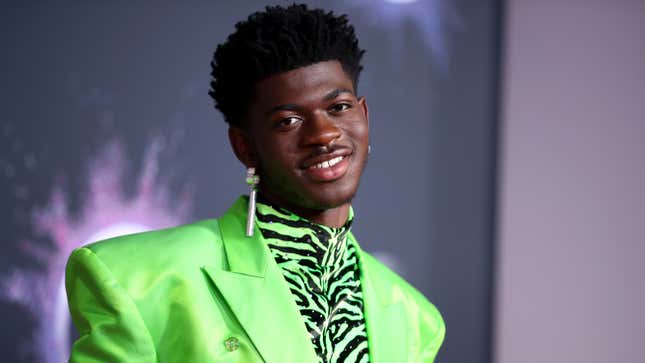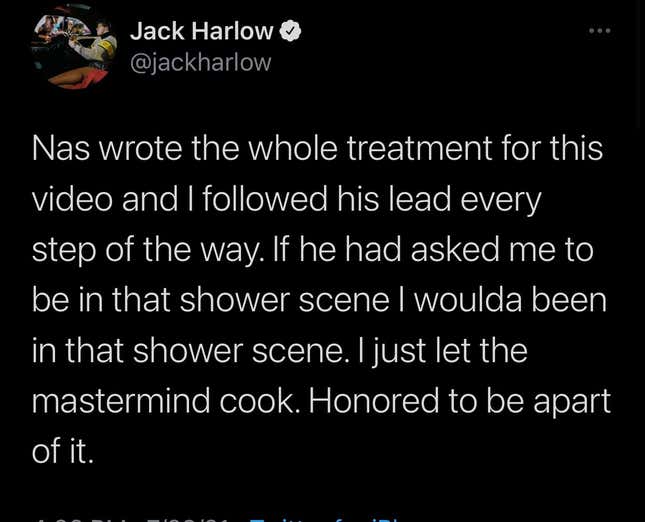
When Lil Nas X dropped the line “you was never really rooting for me anyway” in his latest single, “Industry Baby,” I felt that.
Not only did I feel that, I’m pretty sure Black and brown queer folks felt it, too. After all, more often than not, this world doesn’t really give them the safe space to express themselves and live out loud in whatever way they so choose. Even when they do, Black and brown queer folks still have to do so in a way that’s “appropriate” or digestible to the mainstream or risk being the subject of relentless ridicule.
If you don’t believe me, allow the ceaseless criticism of Lil Nas X to be a perfect case study. As reported by People, following the release of the music video for “Industry Baby,” Lil Nas X has been ducking and dodging internet ugly trolls who fix their mouths to say that his art is somehow the latest part of a larger “gay agenda” hellbent on corrupting the hearts and minds of men, kids and society overall. (Just as an aside, if there’s anyone that wants to actually go read the “gay agenda,” you can find it at the exact same place that “cancel culture” resides. Nowhere. Because it isn’t real. Moving on.)
As we’ve come to learn, though, Lil Nas X is a master at calling (out) haters and homophobes by their name and has been doing so by serving read after read to them online. But there’s another thing that needs to be talked about here.
Lil Nas X’s responses to both his haters and supporters never cease to make the news. We know this; we’ve seen it happen time and time again. Issa a fact at this point. However, when it does make the news, sometimes those same responses don’t always get framed as accurately as they should. I mean, just take a look at a couple of headlines that have hit the internet in just the last few days:
“Y’all know exactly what you’re doing with this caption :/,” Lil Nas X wrote in response to this very interestingly worded headline from People magazine. (The article has since been corrected to better reflect his actual tweet.)
“That’s not exactly what was said sir,” he responded to Variety, which also misconstrued a tweet from his “Industry Baby” collaborator Jack Harlow.

Wow. OK, so, as a member of the media, I understand the pressure to get clicks. I really do. But what about the pressure to accurately frame a thing so that you don’t unintentionally add onto the delusional dog-piling of the person you’re writing about? What about the pressure to value exactness over outrage, specifically as it relates to reporting? What about the pressure to tell the whole story and not just the part that skews towards any one particular way of thinking?
While it’s almost impossible to be 100 percent objective, we must remember that this field plays a large role in how people, places, and things get interpreted. Words mean things, for better or worse. It’s on us to remember to use them in a way that precisely paints the picture and also minimizes harm in the process. I know we can do better. We have to.

